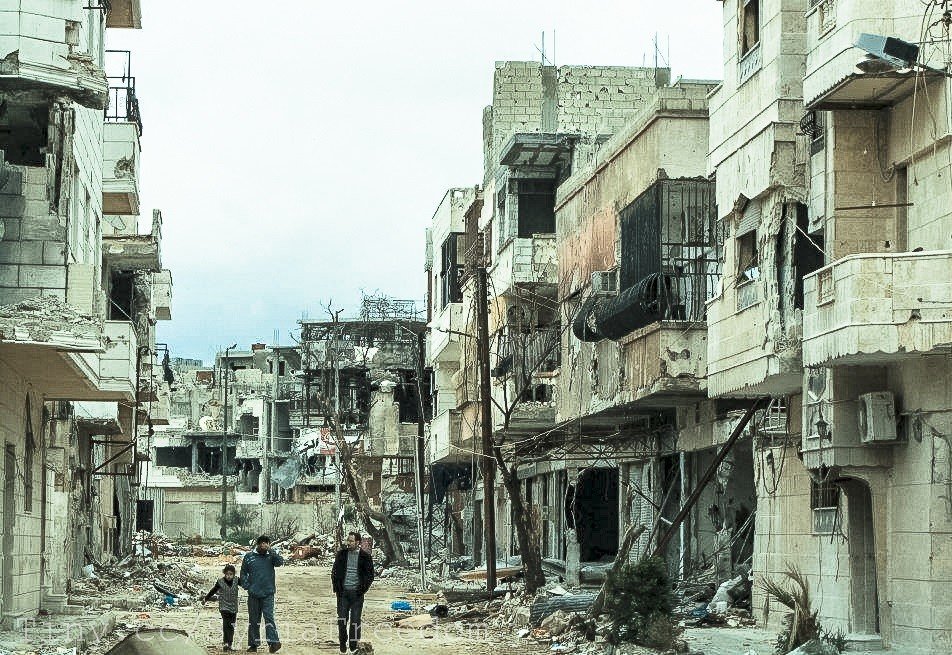“We liberated the rural parts of Aleppo province. We waited and waited for Aleppo City to rise, and it didn’t. We couldn’t rely on them to do it for themselves so we had to bring the revolution to them.” Those were the words in July 2012 of Abu Hashish, a commander from a village in the country near Aleppo. The conflict had indeed spread from the Idleb countryside to northern Aleppo in the early part of the year but only reached the city in July.
Aleppo had been relatively calm before then but it had not been at peace before the conflict, as many think. Small demonstrations took place in marginalized neighborhoods and the University of Aleppo; tensions were rising and had been for some time. The appearance of calm before the armed conflict was due to the regime’s decades-old alliance with the cities’ tribal and business elite. It may have kept the city from rising up but it was also why rural rebels eventually brought the conflict to the city.
Ibn Khaldun, the 14th century philosopher and historian, described a circulation of hardened rural warriors who swept into cities to remove the soft, corrupt elites there. In turn the warriors softened like those they removed from power and in turn were removed. Aleppo’s conflict came about in part because of a massive decline in living standards in the countryside, due to drought (see The Aleppo Project paper Drought in Syria), the failure of the government to respond to water shortages and because of policies since 2000 that created an economy of urban cronies while ignoring the countryside. That drove migration to cities – Syrian cities grew by 50 percent from 2000-2010 – and the new arrivals started to see the inequalities of the system.
While the vocabulary of the Syrian war consists of sectarian conflict, ethnic division, religious hostilities, conspiracy theories and extremism, some of the underlying drivers of the conflict, including class divisions and the rural-urban divide don’t often appear in the analysis. And yet going back to the 1960s and 1970s, almost every conflict or uprising across the Middle East was preceded by a massive movement of people to cities.
 The Aleppo Project
The Aleppo Project